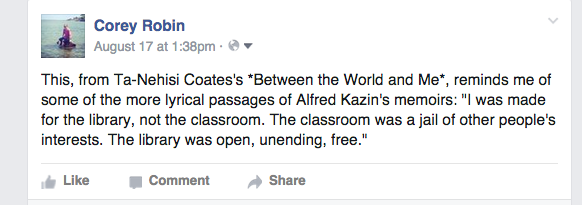 If Hungary can forget after 25 years why a fence on its border is shameful, disgraceful, and disgusting then I guess we shouldn’t be surprised that the Czech police may forget after 70 years that marking people with numbers on their arms for identification purposes is, well, not something that should be happening. Seriously, WTF.
If Hungary can forget after 25 years why a fence on its border is shameful, disgraceful, and disgusting then I guess we shouldn’t be surprised that the Czech police may forget after 70 years that marking people with numbers on their arms for identification purposes is, well, not something that should be happening. Seriously, WTF.
If you’ve been living under a rock or focusing on US media/most Americans’ FB feeds, you may not even know what’s really going on. This Human Rights Watch piece gives a helpful overview. It also points out why things as they stand don’t work.
Worth noting is this piece from Al Jazeera that makes a very good case for why commentators, very much including the mainstream media, should not be talking about refugees as though they were migrants. They are refugees escaping inexplicable circumstances and we owe them the respect to acknowledge that when we discuss their plight.
It boggles the mind that some people, or in certain cases many people, cannot sympathize with these refugees and have nothing but hatred toward them. Is it history education that has completely failed us? Where is people’s compassion? The source of significant current problems is ISIS, hardly a group with which many in Europe would sympathize. So why is it so hard for people to appreciate that these refugees need help? I guess then it is not surprising that people can’t go the extra step to recognize the potential benefits of welcoming these refugees even if they can’t get on board with the humanitarian need.
There are exceptions, fortunately. Several thousand in Iceland have petitioned their government to take in more Syrian refugees. They get it. Refugees have the potential to contribute significantly to any society. From their letter:
Refugees are our future spouses, best friends, or soulmates, the drummer for the band of our children, our next colleague, Miss Iceland in 2022, the carpenter who finally finished the bathroom, the cook in the cafeteria, the fireman, the computer genius, or the television host.
And to be sure, there are also many volunteers who are helping out on the ground across Europe. This piece has concrete suggestions for how you can help even from afar.
Images, of course, often tell the story better than words. I recommend Budapest seen on Facebook for photographs that do a great job capturing the humanity of the situation, the innocence of the children, and the brutality of the circumstances.
And one more important observation:
What never stops amazing me are people who look at the Holocaust and think that it only holds lessons for Germans & Jews.
— Andrew Stroehlein (@astroehlein) September 2, 2015


